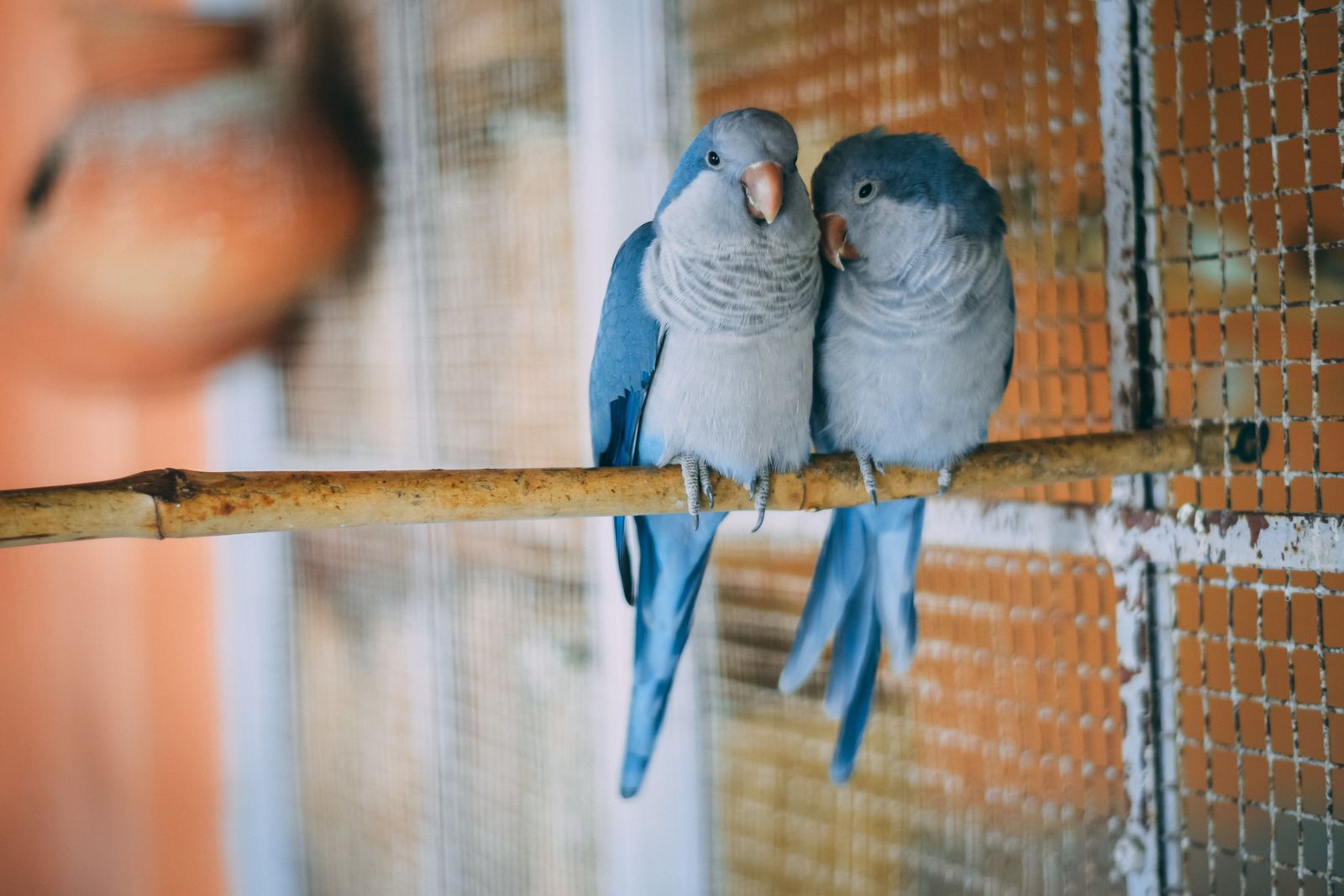If your bird is acting strange this spring, they might be hormonal

One spring day, Illinois resident Jennifer Billock came home to find her family’s parrot, Josie, making a strange squawking noise, like a gravely squeak.
“I’d never heard her make that sound before, so I was worried,” Billock said. After a few minutes, though, Josie laid an egg. “I didn’t know solo pet parrots could even do that. The first thing we did was call the vet.”
Speaking to a Vetster vet, Billock found out that this was actually completely normal — birds in the spring get hormonal, which can lead to laying eggs. It can also lead to a pretty specific set of other behaviors. Here’s what you need to know.
It’s not just springtime that makes birds hormonal
Surprisingly, it’s not just seasonal changes that make birds hormonal. A bird’s hormones can be triggered by having another parrot around, being intensely bonded to their owner, or having a toy that the bird really likes.
“Seasons can definitely be a big contribution,” said Dr. Josh Tollman, a Vetster vet in Vaughan, Ontario. “It’s not a monthly thing so much as it's daylight. What we see is that with increased daylight, birds naturally go into this hormonal sequence.”
The extra hours of sunshine are important particularly for female birds, who take it as a signal that warm weather has arrived — meaning it’s safe to lay their eggs because they’ll be hatching in the summer, rather than in cold weather.
Hormonal birds have very specific behaviors
While Billock noticed her bird squawking and laying eggs, there’s an entire set of behaviors related to hormonal birds. Watch out for these other symptoms:
- Feather picking, which can damage their skin.
- Egg laying and nesting.
- Submissive behavior, like laying on their back.
- Self pleasure with a toy or their owner.
- Regurgitation when their owner comes near them.
- Feather fluffing, like they’re showing off plumage for a mate.
- Vocalizing more than normal.
Here’s how to help
If your bird is hormonal this spring, there’s a lot you can do from home to try and help. And if these steps don’t help, get in touch with your Vetster vet.
Remove the triggers
You may be able to easily see what’s triggering Polly’s hormonal behavior. Find the triggers, and get rid of them. For example, if there’s anywhere your bird can safely nest, or anything in their cage (like a bunch of newspaper or an empty box) that they could turn into a nest, remove those items from the cage. Otherwise it will encourage them to lay eggs. If there’s a certain toy your bird is using for self-pleasure, remove the toy. And if you’re handling your bird in a way that makes them act hormonal — like stroking their lower back or feeding them by hand — stop doing that.
“The owner needs to be really careful how they interact with the bird,” Dr. Tollman said. “How the owner’s handling the bird can actually cause it to be aroused.”
Cover the cage
Since hormonal behaviors are often triggered by daylight, Dr. Tollman suggests creating an artificial nighttime. Cover your bird’s cage with a blanket during the night for 6-8 weeks, and keep it covered for 14 to 16 hours, he says. That will help the daytime-nighttime hormonal cycle click back into place. And you can avoid this situation by keeping your bird’s cage covered for at least 12-hours a day, every day.
Change their diet
If your bird is acting hormonal, they may need an update to their food. Not having an adequate diet can mess with the hormonal system, Dr. Tollman says.
“A lot of owners love to think OK, birds just get seed because that’s what we put outside to feed the birds in the spring,” he said. “But actually, birds need a lot more than just seed.”
A diet of seeds is deficient in the minerals and vitamins birds need, like vitamins A, E, and B. Vitamins and supplements are available, but just as for us humans, it’s better to give your bird fresh fruits and vegetables every day, like green leafy greens, oranges, and apples. Just make sure you never give them avocado; it’s toxic to birds. You can also give your bird boiled eggs and ask your vet for a food suggestion. They’ll likely recommend you try pellets that are specifically formulated to meet birds’ nutritional needs and can round out a whole food diet..
When to get your hormonal bird to the vet
Typically, you’ll be able to handle your bird’s hormonal impulses on your own with an at-home care regimen, Tollman said. But if symptoms become an issue — like excessive feather picking, constant regurgitation, or laying eggs more than a few times a year — it’s time to contact a vet. They’ll first do a diagnostic exam to evaluate your bird's overall health and look for problems, like stress, nutritional issues, or parasites.
“But when it comes to actually fixing the hormones,” Tollman said, “the usual thing is to give an injection of leuprolide, which is an injectable hormone given over a certain amount of weeks. That breaks the hormonal cycle.”
Tollman notes that the majority of first-line treatment options for hormonal birds comes down to husbandry, which is a standard care regimen — simple things that your Vetster vet can talk you through on a virtual visit. So don’t hesitate to get in touch and help your feathered friend get through the season.









